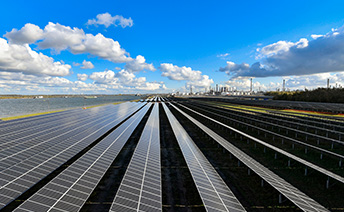Western States Petroleum Association (WSPA)
WSPA represents companies that account for most of the petroleum exploration, production, refining, transport and marketing in the five western states of Arizona, California, Nevada, Oregon and Washington in the USA.[1]
Membership of board/executive committee: Shell is a member of the board of directors.
- 2022 assessment outcome: Some misalignment
- 2021 assessment outcome: Aligned
Summary
Shell benefits from its membership of WSPA, in particular from its supply of accurate information on the oil industry to different audiences. We welcome WSPA’s advocacy on a wide range of issues, such as the California Cap-and-Trade Program, carbon capture and storage, plastics policy, industrial safety, taxes, permitting, workforce development and energy markets.
We note that although WSPA recognised the California target of net-zero emissions by 2045, it opposes some of the proposed plans for how to achieve it. We support California’s 2045 target but share many of WSPA’s concerns about the feasibility of the plan to achieve it. We also note that WSPA opposed the California Advanced Clean Cars II regulation that requires all new passenger vehicles sold in California to be zero-emissions by 2035. Shell supports the target, but shares WSPA’s concerns about the feasibility of the plan to achieve it and some of the associated proposals. We believe there needs to be a more comprehensive clean infrastructure plan that accompanies such a regulation. In both cases, Shell and WSPA are working with policymakers to support a well-designed and feasible pathway to achieve the target, which we believe should also be sensitive to low-income and under-represented communities.
We have found WSPA to have some misalignment with our climate and energy transition-related policy positions.
We will urge WSPA to:
- Explicitly state support for net-zero emissions by 2050.
- Continue to work constructively with policymakers towards a robust and feasible plan that is sensitive to low-income and under-represented communities while helping achieve California’s target of net-zero emissions by 2045.
- Continue to work constructively with policymakers towards a robust and feasible plan to help achieve California’s target that all passenger vehicles sold in the state be zero-emissions by 2035, delivering a plan that is also sensitive to low-income and under-represented communities.
- Publish more information about the work it is doing to help reduce methane emissions throughout the natural gas supply chain, including in relation to direct methane regulations and flaring. While we recognise we no longer operate upstream assets in states covered by WSPA, we encourage the association to support ending routine flaring by 2030 or sooner to help achieve such standards.
We will encourage WSPA to:
- Be more supportive of clean infrastructure investments that will be necessary to support the energy transition, including infrastructure for electrification using renewable and low-carbon power sources.
- Support policies that encourage public and private investment to protect and expand natural ecosystems that store carbon. Support policies to ensure that nature-based solutions complement, and do not displace, efforts to avoid and reduce greenhouse gas emissions.
We will remain a member of WSPA at the current time. We will continue to track alignment between WSPA’s climate and energy transition-related positions and our own and will be transparent about where we find differences. We will continue to engage the association in areas where we have different views, including through our positions on WSPA’s climate committee, government affairs committee and board of directors.
Further information
Click on the sections below to read more.
Paris Agreement and net-zero emissions
- WSPA has stated that it supports “the aspirational goals of the Paris Agreement”.[2]
- WSPA has not explicitly stated a position in support of net-zero emissions, although it has stated that “carbon neutrality is a bold and admirable goal and one the state of California has set to achieve by 2045.”[3]
While WSPA appears to recognise California’s target of net-zero emissions by 2045, it opposes the plan to achieve it. In May 2022, WSPA stated that the plan to achieve climate neutrality by 2045 should provide “incentives for California businesses to innovate at an ever faster pace. Bans, mandates and regulations that pick winners and losers is high cost, unnecessary and inequitable.”[4] In September 2022, in response to California’s Governor signing the 2045 climate neutrality target into law, WSPA’s CEO stated: “The Governor’s actions are meant to eliminate oil production and associated jobs in California, make us dependent on other countries for our fuels, dictate how and when we can travel and mandate the energy we use.”[5] WSPA also ran a campaign encouraging Californians to oppose the climate plan.[6]
In 2021, WSPA was one of the sponsors of a Stanford Centre for Carbon Storage and Stanford Carbon Removal Initiative report titled “Pathways to Carbon Neutrality in California” that captured insights from a range of stakeholders, including WSPA.[7]
Shell supports California’s target to achieve net-zero emissions by 2045, but shares many of WSPA’s concerns about the feasibility of the plan to achieve it. Shell and WSPA are working with policymakers to support a well-designed and feasible plan to achieve the target, which we believe should also be sensitive to low-income and under-represented communities. - In November 2021, WSPA’s CEO, stated that WSPA supports an “all of the above” energy strategy, including “more renewables, more new technologies, and yes, more oil and gas, to ensure our homes, our businesses, our transportation systems, and our communities are safeguarded and reliably powered”.[8]
Carbon pricing
- WSPA has stated support for “market-based approaches – such as a cap-and-trade program or a carbon tax”.[9] WSPA has stated support for the California cap-and-trade scheme.[10]
- In June 2022, in its response to the California Air Resources Board’s (CARB) 2022 Draft Scoping Plan Update, WSPA stated that CARB should “model an alternative that relies more heavily on market-based approaches, such as cap and trade, to achieve emission reductions”.[11]
Energy efficiency
No position
Decarbonised hydrogen
- WSPA has stated support for decarbonised hydrogen.[12]
- In its June 2022 letter to CARB about the 2022 Draft Scoping Plan Update, WSPA stated “we appreciate CARB’s recognition that hydrogen will be critical to achieving carbon neutrality.”[13] It also stated that “it is unclear why the Proposed Scenario requires that all hydrogen produced in 2045 must be zero-carbon instead of allowing this sector, like every other sector, to have a small amount of carbon emissions that are offset by DAC [Direct Air Capture] and other negative emissions technologies.”[14]
Natural ecosystems
- A WSPA blog post has noted the role of nature-based solutions in helping to meet the climate challenge.[15] It has not published an explicit public position in support of policies to ensure that nature-based solutions complement, and do not displace, efforts to avoid and reduce greenhouse gas emissions.
- In 2022, WSPA published information about actions that its members are undertaking in relation to natural carbon sinks.[16]
Carbon capture and storage
- WSPA has stated support for policy mechanisms to drive carbon capture and storage (CCS) deployment.[17]
- In its June 2022 letter to CARB about the 2022 Draft Scoping Plan Update, WSPA stated that CCS and carbon dioxide removal technologies “are essential to achieving carbon neutrality”.[18]
- WSPA opposed California’s SB 905 (Caballero) bill because it “fails to accelerate and promote the aggressive deployment of CCS projects”.[19]
Environmental, social and governance (ESG) standards and benchmarks, sustainable finance taxonomies
No position
Coal
No position
Electrification with renewable or low-carbon power
- WSPA has not stated a position on accelerating electrification using renewable and low-carbon power sources. WSPA states support for an “all-of-the-above energy mix” and supports the use of market-based approaches, such as cap and trade, to achieve emission reductions.[20] [21]
- In its June 2022 letter to CARB about the 2022 Draft Scoping Plan Update, WSPA stated that it considered the proposed “extreme buildouts of electrical generation, grid capacity, and technology production are neither cost-effective nor feasible.”[22] WSPA noted the role of natural gas with CCS for power to “allow for increased reliability in California’s energy mix through 2040 and by 2045” and encouraged it to “consider including RNG, hydrogen and other sources of dispatchable electricity generation to support renewables integration and make the grid more reliable”.[23] Shell, like WSPA, has concerns about the feasibility of some of the proposed pathways set out for California. We believe that significantly more investment in electricity infrastructure and other low- and zero-carbon technologies is required, such as hydrogen and biomethane.
Gases and methane
- WSPA has stated support for an “all-of-the-above energy mix”, including policies that recognise the role of natural gas and other low-carbon gases “to support renewables and make the grid more reliable”.[24] [25]
- WSPA does not appear to have published information relating to its methane advocacy in 2022. However, we note that in February 2023 WSPA stated that “WSPA is working with California’s regulatory agencies, including CARB, regional air districts, and CalGEM, to ensure compliance with existing laws and regulations, and to help craft technically sound and scientifically based regulations that help to reduce methane emissions across the oil and gas industry.”[26]
- WSPA does not have a position on ending routine flaring by 2030 or sooner.
Road transport: Passenger cars and vans
- WSPA has stated that “climate policies should be technology-neutral and fuel-neutral, but connected to the pursuit of climate related objectives.”[27] WSPA does not support mandates for zero-emission vehicles or bans for internal combustion engines.[28] [29] [30]
- In its 2022 statement on CARB’s approval of Advanced Clean Cars II rule[31] that requires all new passenger vehicles sold in California to be zero-emissions by 2035, WSPA stated that “there are better ways to meet our important climate goals without bans, mandates and forcing all Californians into one form of energy.”[32] It states “in just over three years, the sales of electric vehicles—that average $66,000 each—will need to more than double. There is no plan to make that happen.”[33] Shell supports California’s target for all passenger cars to be zero-emission by 2035, but shares WSPA’s concerns about the feasibility of the plan to achieve it and some of the associated proposals. Shell believes there needs to be a more comprehensive clean infrastructure plan that accompanies such a phase-out. Shell and WSPA are working with policymakers to support a well-designed and feasible plan to achieve the target, which we believe should also be sensitive to low-income and under-represented communities.
Road transport: Heavy-duty vehicles
- WSPA has stated that “climate policies should be technology neutral and fuel neutral, but connected to the pursuit of climate related objectives.”[34]
- In its June 2022 letter to CARB about the 2022 Draft Scoping Plan Update, WSPA stated support for “CARB’s recognition that low-carbon hydrogen will play a critical role in reducing greenhouse gas emissions from the transportation sector (for heavy-duty vehicles, ocean-going vessels, rail, and aviation) and the industrial manufacturing sector”.[35]
- In its October 2022 letter to CARB opposing the Advanced Clean Fleets regulation, WSPA stated that the proposed rule would exclude a “multi-technology/multi-fuel strategy using commercially available, CARB-certified trucks fuelled by low carbon-intensity fuels”; WSPA stated that the proposed rule should be revised “to capture the emission reduction benefits of a multi-technology/multi-fuel strategy”.[36] Shell broadly shares WSPA’s concerns with the regulation.
Heavy industry decarbonisation
No position
Aviation
- WSPA recognises the role of sustainable aviation fuels in helping to decarbonise aviation.[37]
- In its June 2022 letter to CARB about the 2022 Draft Scoping Plan Update, WSPA stated support for the role of sustainable aviation fuel in decarbonising the economy.[38]
Shipping
No position
Return to list of associations[1] https://www.wspa.org/about/
[2] https://www.wspa.org/resource/western-states-petroleum-association-supports-u-s-rejoining-paris-agreement/
[3] https://www.wspa.org/resource/from-obstacle-to-opportunity-how-carbon-emissions-can-support-a-sustainable-energy-future/
[4] https://www.wspa.org/resource/draft_scoping_plan/
[5] https://www.wspa.org/resource/wspa-response-to-newsoms-54-billion-in-climate-mandates/
[6] https://www.wspa.org/messagefromca/
[7] https://sccs.stanford.edu/california-projects/pathways-carbon-neutrality-california
[8] https://www.wspa.org/resource/achieving-carbon-goals-with-an-all-of-the-above-energy-mix/
[9] https://www.wspa.org/issue/climate-change/
[10] https://www.wspa.org/resource/cap-and-trade-prevails-one-year-into-pandemic/
[11] https://www.arb.ca.gov/lists/com-attach/4416-scopingplan2022-BnEAdVQlBTdRCAZn.pdf
[12] https://www.arb.ca.gov/lists/com-attach/4416-scopingplan2022-BnEAdVQlBTdRCAZn.pdf
[13] https://www.arb.ca.gov/lists/com-attach/4416-scopingplan2022-BnEAdVQlBTdRCAZn.pdf
[14] https://www.arb.ca.gov/lists/com-attach/4416-scopingplan2022-BnEAdVQlBTdRCAZn.pdf
[15] https://www.wspa.org/resource/nature-based-climate-solutions-playing-an-essential-role-in-our-sustainable-energy-future/
[16] https://www.wspa.org/resource/reducing-carbon-one-tree-at-a-time/
[17] https://www.wspa.org/wp-content/uploads/WSPA_CCUS-Factsheet.pdf
[18] https://www.arb.ca.gov/lists/com-attach/4416-scopingplan2022-BnEAdVQlBTdRCAZn.pdf
[19] https://assets.nationbuilder.com/bizfed/mailings/6400/attachments/original/SB_905_%28Caballero_Skinner%29_Coalition_Floor_Alert_Oppose_v2.pdf?1661892823
[20] https://www.wspa.org/resource/achieving-carbon-goals-with-an-all-of-the-above-energy-mix/
[21] https://www.arb.ca.gov/lists/com-attach/4416-scopingplan2022-BnEAdVQlBTdRCAZn.pdf
[22] https://www.arb.ca.gov/lists/com-attach/4416-scopingplan2022-BnEAdVQlBTdRCAZn.pdf
[23] https://www.arb.ca.gov/lists/com-attach/4416-scopingplan2022-BnEAdVQlBTdRCAZn.pdf
[24] https://www.wspa.org/resource/achieving-carbon-goals-with-an-all-of-the-above-energy-mix/
[25] https://www.arb.ca.gov/lists/com-attach/4416-scopingplan2022-BnEAdVQlBTdRCAZn.pdf
[26] https://www.wspa.org/resource/understanding-methanes-impact-on-climate-change-and-efforts-to-reduce-its-emissions-in-californias-oil-and-gas-industry/
[27] https://www.wspa.org/issue/climate-change/
[28] https://www.wspa.org/resource/wspa-president-and-ceo-catherine-reheis-boyd-has-issued-the-following-statement-in-response-to-carbs-approval-of-the-advanced-clean-cars-ii-rule/
[29] https://ww2.arb.ca.gov/sites/default/files/barcu/board/mt/2022/mt060922.pdf
[30] https://www.wspa.org/resource/bans-mandates-and-bad-policy-impacts-families-business-and-our-economy/
[31] https://ww2.arb.ca.gov/our-work/programs/advanced-clean-cars-program/advanced-clean-cars-ii
[32] https://www.wspa.org/resource/wspa-president-and-ceo-catherine-reheis-boyd-has-issued-the-following-statement-in-response-to-carbs-approval-of-the-advanced-clean-cars-ii-rule/
[33] https://www.wspa.org/resource/wspa-president-and-ceo-catherine-reheis-boyd-has-issued-the-following-statement-in-response-to-carbs-approval-of-the-advanced-clean-cars-ii-rule/
[34] https://www.wspa.org/issue/climate-change/
[35] https://www.arb.ca.gov/lists/com-attach/4416-scopingplan2022-BnEAdVQlBTdRCAZn.pdf
[36] https://www.arb.ca.gov/lists/com-attach/292-acf2022-Wi1VIAFwVGZQCVc2.pdf
[37] https://www.arb.ca.gov/lists/com-attach/4416-scopingplan2022-BnEAdVQlBTdRCAZn.pdf
[38] https://www.arb.ca.gov/lists/com-attach/4416-scopingplan2022-BnEAdVQlBTdRCAZn.pdf










